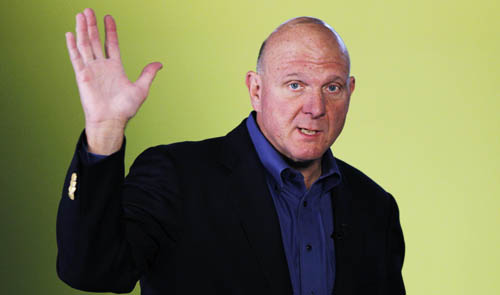Microsoft Corp Chief Executive Steve Ballmer unexpectedly announced his retirement on Friday, ending a controversial 13-year reign at the head of the world's largest software company and sending the company's shares up 7.1 percent.
Ballmer, 57, took over from co-founder Bill Gates in January 2000, but his leadership was questioned throughout his tenure by Wall Street and Silicon Valley, as Microsoft's stock price floundered and the PC-centric pioneer was overtaken by Apple Inc and Google Inc in the shift toward mobile computing.
Ballmer's planned exit comes shortly after activist investing fund ValueAct Capital Management LP took a small stake in the company, and started agitating for a change in strategy and a clear CEO succession plan.
Only last month Ballmer launched a massive reorganization to reshape Microsoft into a company focused on devices and services, essentially mimicking Apple, leaving most industry watchers nonplussed.
"My original thoughts on timing would have had my retirement happen in the middle of our company's transformation to a devices and services company," said Ballmer in a statement. "We need a CEO who will be here longer term for this new direction."
Although Ballmer has faced criticism for some time, his decision to retire surprised analysts.
"Yes, this was a surprise, especially considering how close it is to the recently announced strategic overhaul towards devices and services," said Sid Parakh, an analyst at McAdams Wright Ragen.
Ballmer is to retire within the next 12 months, once a special committee has selected a new CEO.
The committee is to be chaired by John Thompson, the board's lead independent director, and includes Microsoft co-founder and Chairman Bill Gates, as well as other board members Chuck Noski and Steve Luczo.
It will consider both external and internal candidates and work with executive recruiting firm Heidrick & Struggles International Inc, according to Microsoft.
Its shares rose 7.1 percent to $34.69 on Nasdaq.






















































